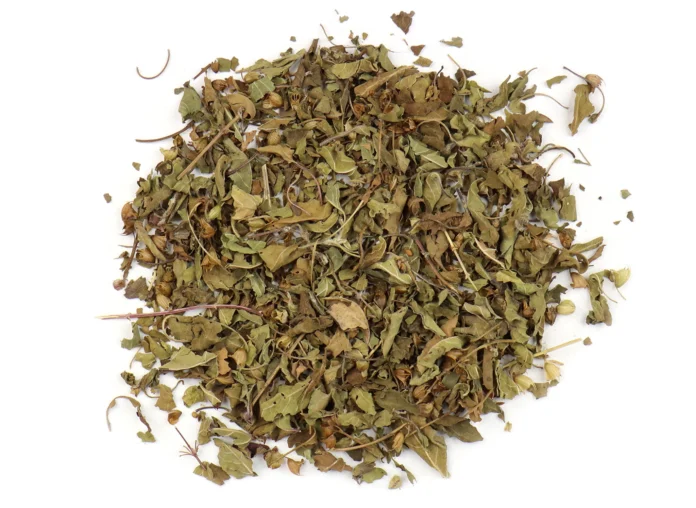Introduction

Hyssop, known scientifically as Hyssopus officinalis, is a perennial herb native to southern Europe, the Middle East, and parts of Asia. It has been used for centuries in traditional medicine, culinary practices, and religious rituals. In some cultures, it is referred to as “Gul Zoofa” or “Zoufa.” This aromatic herb is a member of the mint family and is often recognized for its distinctive blue, purple, or pink flowers, which are complemented by its bitter, somewhat spicy flavor. Historically, hyssop has been valued for its medicinal properties, which have made it a staple in both ancient and modern herbal remedies. It has been used to treat a range of ailments from respiratory issues to digestive problems.
Forms of Hyssop
Hyssop can be found in several forms, each offering different methods of usage:
Dried Herb: The dried leaves and flowers of hyssop are commonly used for herbal teas, tinctures, and poultices. The dried herb retains much of the plant’s beneficial properties, and it can be steeped to make soothing infusions.
Essential Oil: Hyssop essential oil is extracted through steam distillation from the leaves and flowers of the plant. This concentrated form is used in aromatherapy, massage therapy, and for topical applications. It is known for its stimulating and cleansing properties.
Tinctures: Hyssop tinctures are made by soaking the herb in alcohol or another solvent to extract its active compounds. This form is typically used for internal use, especially to treat respiratory ailments.
Capsules/Tablets: Hyssop is also available in capsule or tablet form, making it easier to consume for those who prefer standardized dosages or wish to avoid the bitter taste of the herb.
Herbal Tea: Hyssop leaves and flowers are often steeped in hot water to create a calming tea, which is popularly consumed for its medicinal benefits.
Benefits of Hyssop (Gul Zoofa / Zoufa)
Hyssop has long been lauded for its wide range of medicinal and therapeutic benefits. Some of the primary advantages include:

Respiratory Health: Hyssop has been traditionally used to treat respiratory conditions such as asthma, bronchitis, and coughs. It works as an expectorant, helping to loosen mucus and phlegm in the lungs. Additionally, its anti-inflammatory and antimicrobial properties may help in alleviating symptoms of cold and flu.
Digestive Aid: Hyssop has mild carminative properties, meaning it helps to relieve gas, bloating, and indigestion. It stimulates the digestive system and can be useful for individuals experiencing gastrointestinal discomfort.
Anti-inflammatory Properties: The herb contains compounds that exhibit anti-inflammatory effects. This makes it useful for treating conditions like arthritis and joint pain by reducing swelling and inflammation in affected areas.
Antioxidant Effects: Hyssop is rich in antioxidants, which help combat oxidative stress in the body. These antioxidants protect cells from damage caused by free radicals and may lower the risk of chronic diseases such as heart disease and cancer.
Antimicrobial Activity: Hyssop has been shown to possess antimicrobial properties, making it effective against various bacteria, viruses, and fungi. It is often used to disinfect wounds or treat minor skin infections.
Mental Health Benefits: Hyssop has been used as a mood enhancer. It is believed to promote relaxation, reduce anxiety, and support mental clarity. Its essential oil is often used in aromatherapy to reduce stress and encourage emotional well-being.
Detoxification: The herb has detoxifying properties, promoting the elimination of toxins from the body through sweat and urine. This makes it useful in cleansing and maintaining overall health.
Skin Health: Hyssop’s antimicrobial and anti-inflammatory properties can aid in treating various skin conditions like acne, eczema, and minor cuts. It helps soothe irritation and prevent infection.
Side Effects of Hyssop
While hyssop is generally considered safe for most individuals when used in moderation, it can cause side effects in some cases. It is important to be aware of potential adverse reactions, especially with concentrated forms like essential oils and tinctures:

Allergic Reactions: Some people may be allergic to hyssop, resulting in skin irritation, rashes, or other allergic symptoms. Always perform a patch test before using the essential oil on the skin.
Digestive Issues: While hyssop can aid digestion, excessive consumption may lead to stomach upset, nausea, or diarrhea. It is important to adhere to recommended dosages when using the herb in any form.
Pregnancy and Breastfeeding: Hyssop should be avoided during pregnancy, as it may stimulate uterine contractions, potentially leading to complications. It is also not recommended during breastfeeding due to a lack of sufficient research on its safety.
Drug Interactions: Hyssop may interact with certain medications, particularly those related to blood pressure, blood sugar, or anticoagulants. Individuals on prescription medications should consult a healthcare provider before using hyssop supplements.
Essential Oil Risks: When using hyssop essential oil, it should never be ingested, and care should be taken not to apply it undiluted to the skin. It can cause skin irritation or an allergic reaction if used improperly. It should always be diluted with a carrier oil.
Seizures: There is some concern that high doses of hyssop could lead to seizures, especially with prolonged use of the essential oil or concentrated forms. People with a history of seizures or neurological disorders should avoid this herb or use it under medical supervision.
This Article is for Basic Information. Contact a professional doctor before using it.
HAKEEM KARAMAT ULLAH
+923090560000




